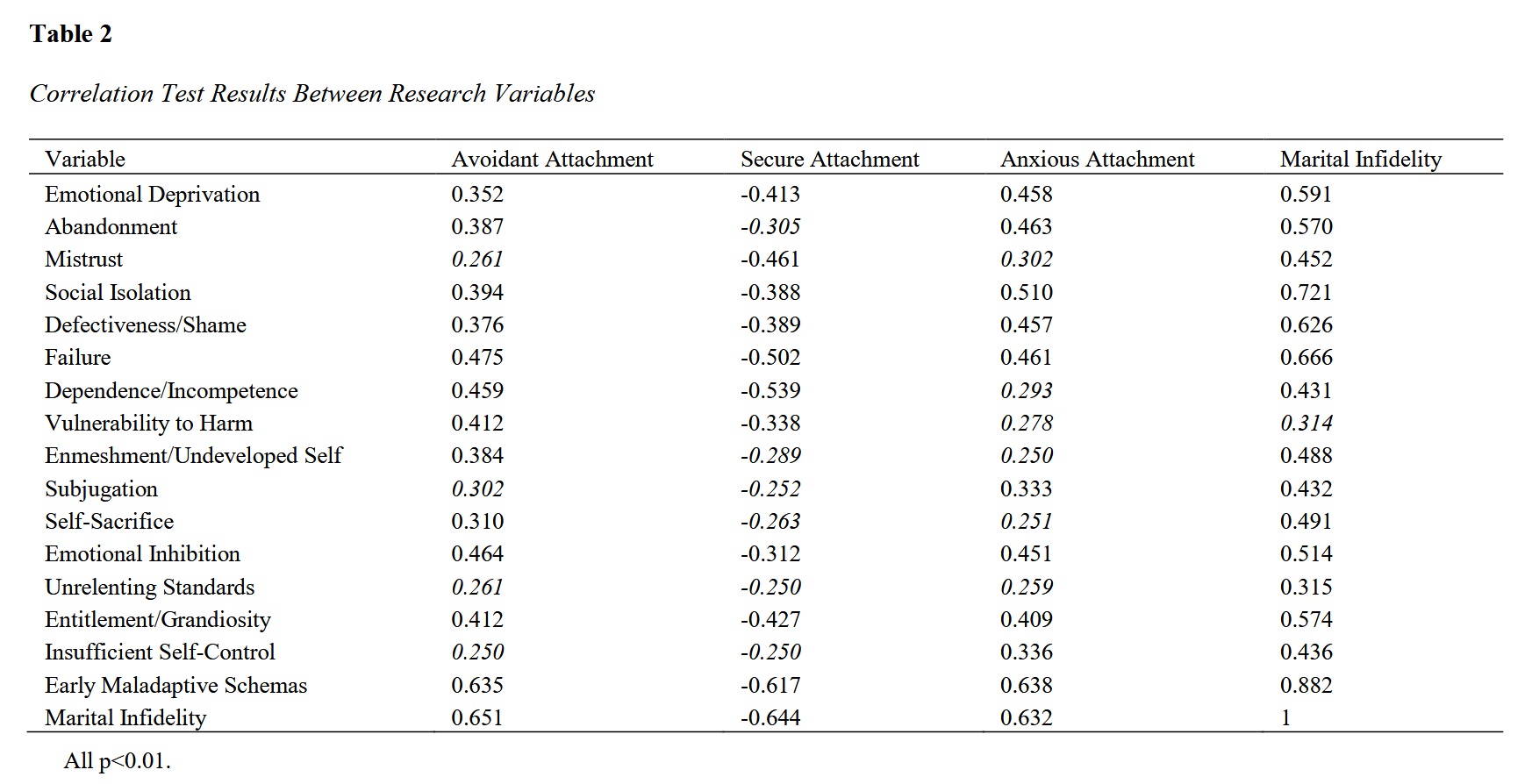The Causal Relationship Between Early Maladaptive Schemas and Attachment Styles with Attitudes Toward Marital Infidelity Among Married Men and Women
Keywords:
Early Maladaptive Schemas, Attachment Styles, Attitudes Toward Marital InfidelityAbstract
Objective: The present study aimed to develop a causal model of the relationship between early maladaptive schemas and attachment styles with attitudes toward marital infidelity among married men and women attending counseling centers in Tonekabon.
Methods and Materials: This research is applied in terms of purpose and descriptive-analytical in terms of methodology, conducted as a survey using the statistical method of structural equation modeling. A total of 75 individuals, both men and women attending counseling centers in Tonekabon, were selected using simple random sampling to test the hypotheses and model fit. Data were collected using the Young Early Maladaptive Schema Questionnaire (1998), the Hazan and Shaver Attachment Styles Questionnaire (1998), and the Mark Whitley Marital Infidelity Questionnaire (2009). Data were analyzed using SPSS22 and SmartPLS3 software. The Kolmogorov-Smirnov test was used to assess the normality of data, confirmatory factor analysis was employed to validate the questions and identify key factors of each component, and structural equation modeling was used to evaluate the fit of the research model.
Findings: Based on the results, the causal relationship model of the aforementioned variables exhibited an acceptable fit. The results indicated that all fitness indices showed the model's alignment with the data. Overall, in the proposed research model, all paths were significant, thus confirming the hypotheses related to these paths. Additionally, the findings revealed that early maladaptive schemas had a significant positive effect on attitudes toward marital infidelity (β = 3.338), secure attachment styles on attitudes toward marital infidelity (β = 4.048), avoidant attachment styles on attitudes toward marital infidelity (β = 2.946), and ambivalent attachment styles on attitudes toward marital infidelity (β = 3.925), all of which are greater than the value of 1.96, indicating a significant positive effect at a 95% confidence level. Attachment styles, through early maladaptive schemas, had a significant indirect effect on attitudes toward marital infidelity among married men and women attending counseling centers in Tonekabon.
Conclusion: The findings suggest that as the level of early maladaptive schemas and attachment styles change in clients, their attitudes toward marital infidelity increase correspondingly.
Downloads

Downloads
Additional Files
Published
Issue
Section
License
Copyright (c) 2024 Ahmad Estebsari (Corresponding Author); Shahnam Abolghasemi (Author)

This work is licensed under a Creative Commons Attribution-NonCommercial 4.0 International License.














